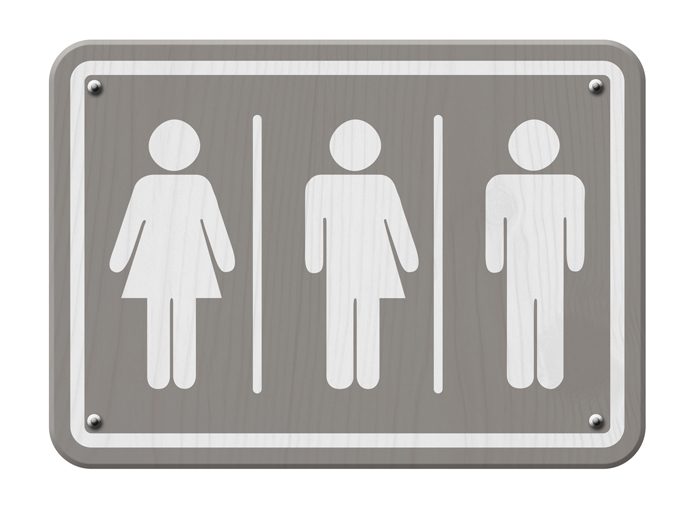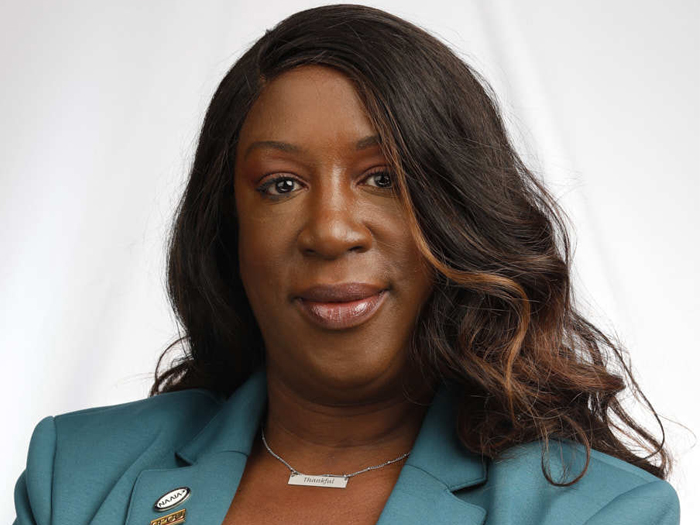Employment Practices
Transgender Challenges

North Carolina’s dispute with the federal government over transgender use of public bathrooms affects the wider issue of workplace discrimination – and not just in North Carolina.
While no federal statute expressly states workplace discrimination may be based on sexual orientation or gender identity, U.S. regulators are pushing that interpretation in North Carolina. The federal government also recently mandated that schools must permit transgender students to select the bathroom of their choice, or face the loss of federal funding.
Many state and municipal authorities have passed legislation that prohibits discrimination based on sexual orientation. Transgender protection is a relatively new issue.
“It’s going on everywhere; it’s happening.” — Brian Cafritz, partner, KPMLaw.
Charlotte, N.C. passed an ordinance earlier this year to allow transgender people to select a public bathroom based on the sex they identify with. That was overturned when the state passed a law restricting such a choice.
Employers in all states should take note of these disputes, as companies may face compliance issues as well as potential litigation, experts said.
“It’s going on everywhere; it’s happening,” said attorney Brian Cafritz, a partner at KPMLaw in Richmond, Va.
Studies show the transgender population experiences higher rates of discrimination than even gay, lesbian and bisexuals, he said.
It’s not just a bathroom issue. There could also be exposure if a transgender applicant is not hired, a transgender employee is not promoted or if he or she is a victim of some other type of discrimination.
On the federal level, the regulatory push centers on Title VII of the Civil Rights Act of 1964, which makes it illegal to discriminate against an employee based on race, color, religion, national origin or sex.
While Title VII does not specifically address gender identification, it has been interpreted to offer discrimination protection for lesbian, bisexual, gay and transgender (LBGT) employees.
In addition, the Occupational Safety and Health Administration requires employers to make toilet facilities available so that all employees can use them when they need to do so, and the employers cannot impose unreasonable restrictions on the use of those facilities, Cafritz said.
Staying out of Difficulty
Employers should not wait to address this issue until an employee raises a concern, said Todd A. Solomon, a partner at McDermott Will & Emery LLP in Chicago. They should consider revamping employee policies now to set clear guidelines.
Companies also must train employees never to base their decisions on their personal approval or disapproval of an individual’s appearance or beliefs, Cafritz said. All decisions should be based on valid business reasons and not from personal preferences or something unique to the individual.
“Even if your workforce doesn’t have a transgender individual, you should already have voluntary transgender guidelines in place to say, ‘Here’s how we will handle the unique issues facing transgender employees.” — Todd A. Solomon, partner, McDermott Will & Emery LLP
Solomon said that updated employee handbooks and training makes it easier for businesses to stay out of difficulty.
“I think the best advice is to stay ahead of the issue,” Solomon said.
“Even if your workforce doesn’t have a transgender individual, you should already have voluntary transgender guidelines in place to say, ‘Here’s how we will handle the unique issues facing transgender employees.”
It’s more than a matter of words in a handbook, however.
“You can add in ‘sexual orientation’ or ‘gender identity’ to your policy, but it is more a matter of how your existing policy is enforced,” said Carmon Harvey at LeClair Ryan in Philadelphia.
“That is the way you will better position yourself to avoid lawsuits going forward.”
It may not be necessary for employers to specifically address bathroom designations as long as they work in good faith with their employees, Harvey said. She recommended companies have an employment attorney conduct regular audits of policies and then train their human resource personnel and managers on new developments.
“It almost seems like the politicians may be making a bigger deal of this than the employees in the workplace,” said Harvey.
“I think there’s an easy fix: Communication. When an issue relating to bathroom facilities arises, communicate with all employees to avoid surprises that might cause unease and to ensure that no other gender-identity related harassment is occurring in the workplace.”
Sometimes it’s not practical to build single-use, unisex facilities in every office. In those cases, Cafritz suggested retrofitting stalls in multi-use bathrooms with floor-to-ceiling walls and doors to increase privacy.
‘Novel Area’ of the Law
“Common sense should prevail, but I don’t know what common sense is in all cases,” said Michael Santocki, managing director at Crystal & Company.
“This is a novel area of the law and I think there’s going to be some broken eggs before they figure out how to do it.”
Just being well-intentioned may not be enough to protect employers, because in addition to valid complaints there are always disgruntled and dishonest workers who will file an opportunistic claim.
“It’s impossible to avoid the possibility of the suit,” said Santocki.
“You can’t eliminate all of the risk, even if you have all the proper laws adhered to and the nicest staff.”
There’s always going to be people who will take advantage of the system and unfortunately most cases settle because it is the cheapest resolution, he said.
Employment practices liability insurance policies “are very broad and meant to cover the full gamut of complaints,” Santocki said. And often they are not that expensive; a company with 100-plus employees can get a policy for approximately less than $10,000.
Depending on the size of the company, EPLI can be offered as an endorsement to a business owner’s policy (BOP), a general liability policy, or a specific stand-alone policy can be written in conjunction with a BOP policy.
General liability policies may also be triggered in discrimination claims, Cafritz said.
Employers need to make sure, if any discriminatory conduct occurs, they do not condone or ratify the conduct, Cafritz said. Silence can be seen as ratifying the conduct – and liability can follow ratification.
If an employer fails to take appropriate action, a jury might send a message by issuing a significant penalty based on wages going forward, plus punitive damages and attorney fees, Harvey said.
Last year, the federal government received 1,412 charges that included allegations of sex discrimination related to sexual orientation and/or gender identity/transgender status, according to the U.S. Equal Employment Opportunity Commission.
This is an increase of about 28 percent over the 1,100 LGBT charges in 2014. The EEOC resolved 1,135 LGBT charges in 2015, including voluntary agreements involving about $3.3 million for workers, and changes to employer policies so that discrimination would not recur.
“Five years ago, same-sex marriage wasn’t even legal in most states. Now transgender employee rights are going to be a big issue for employers over the next couple of years,” Solomon said. “Changes are happening at lightning speed and it’s interesting to think about how fast this has changed.”












